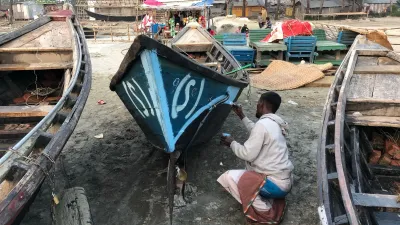
Supporting global communities in making sense of risk
A blog from Padmini Ravi, Project Manager – Risk Know-How, Sense about Science.
This page is approximately a 4 minute read
This page was published on

If you’ve been in the field of safety & health for any amount of time, you’ve no doubt had a conversation – probably a frustrating and unsatisfying one – about a concept that has plagued the profession for decades: value. For years, safety & health practitioners have been faced with the question of how we represent the “worth” of not only what we do for a living, but how we understand the inherent importance (or lack thereof) of safety & health initiatives as a whole. In some quarters, this conversation is framed around the “business case” for a particular project or set of projects; in others, it comes through the broader lens of impact evaluation to those we serve, whether internal or external to our organizations.
The models developed by safety & health researchers and leaders have generally utilized a similar approach to answering this question – first, understanding the specific monetary and economic value of avoiding or mitigating incidents (which varies significantly from region to region), and second, attempting to quantify the “unquantifiables” – productivity, culture, morale, community engagement, reputation, and so on. These models have been variously satisfying but have major gaps, which have been further exposed by the rise of the conversation around Environmental, Social & Governance (ESG) efforts which simultaneously tend to minimize safety & health as one aspect of the “social” pillar while utilizing elaborate and well-researched valuation methodologies that highlight the value of environmental and sustainability activities.
What’s more, much has changed in the safety & health field in the decades since most commonly accepted value models were developed. The emergence of more mature and nuanced approaches to safety (Leading Indicators, Serious Injury & Fatality Prevention, Human & Organizational Performance, “Safety 2.0” and the “New View”) alongside a “Whole Person” viewpoint on caring for workers (Total Worker Health initiatives, mental health, stress, fatigue, and psychological safety) have left existing models woefully out of step with the ways in which we currently conceive of the scope and value of safety & health as practiced.
The National Safety Council, in partnership with Lloyds Register Foundation, has recently embarked on a multi-year effort to develop a modern model exploring the “New Valuation of Safety & Health” for the current day and age. Beginning with a rapid evidence assessment and review performed by Technical University of Delft, our shared work has already identified major gaps in the way practitioners, organizations, researchers, and government entities understand safety & health value, including significant lack of depth in the emerging areas mentioned above.
This next phase is set to continue in the coming months with the NSC team examining the proliferation of models, frameworks, tools, and methodologies developed in the ESG & sustainability communities, alongside a clear-eyed look at the way in which modern safety & health initiatives frame the dimensions and scope of their work, including such areas as physical and mental well-being, reputational value, and community impact.
The initial results of this work will be validated and vetted with an expert group of safety & health leaders and will lead to a working model of the New Valuation of Safety & Health that will be tested in the field to evaluate its accuracy, efficacy, and utility for assessing value and identifying areas of potential change and impact. Ultimately, this new model will be published alongside easy “Quick Start” guides for stakeholders in the business, government, insurance, academic, and government communities to provide direction in assessing a “truer” value of safety & health. In so doing, we believe we can bring about changes to policies, procedures, and reporting to address gaps in safety & health and ESG performance, influence organizations at all levels to adopt leading practices, and bolster efforts to save lives and prevent injuries and illness worldwide.
We look forward to sharing this necessary and meaningful work with you in the coming months and encourage you to reach out if you are interested in taking part in this exciting project!